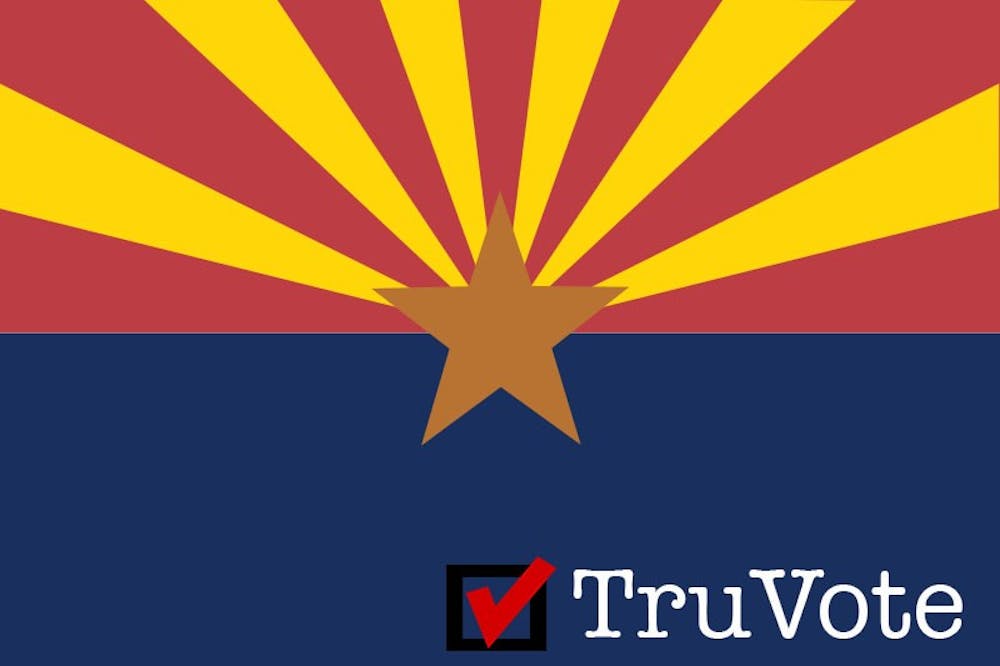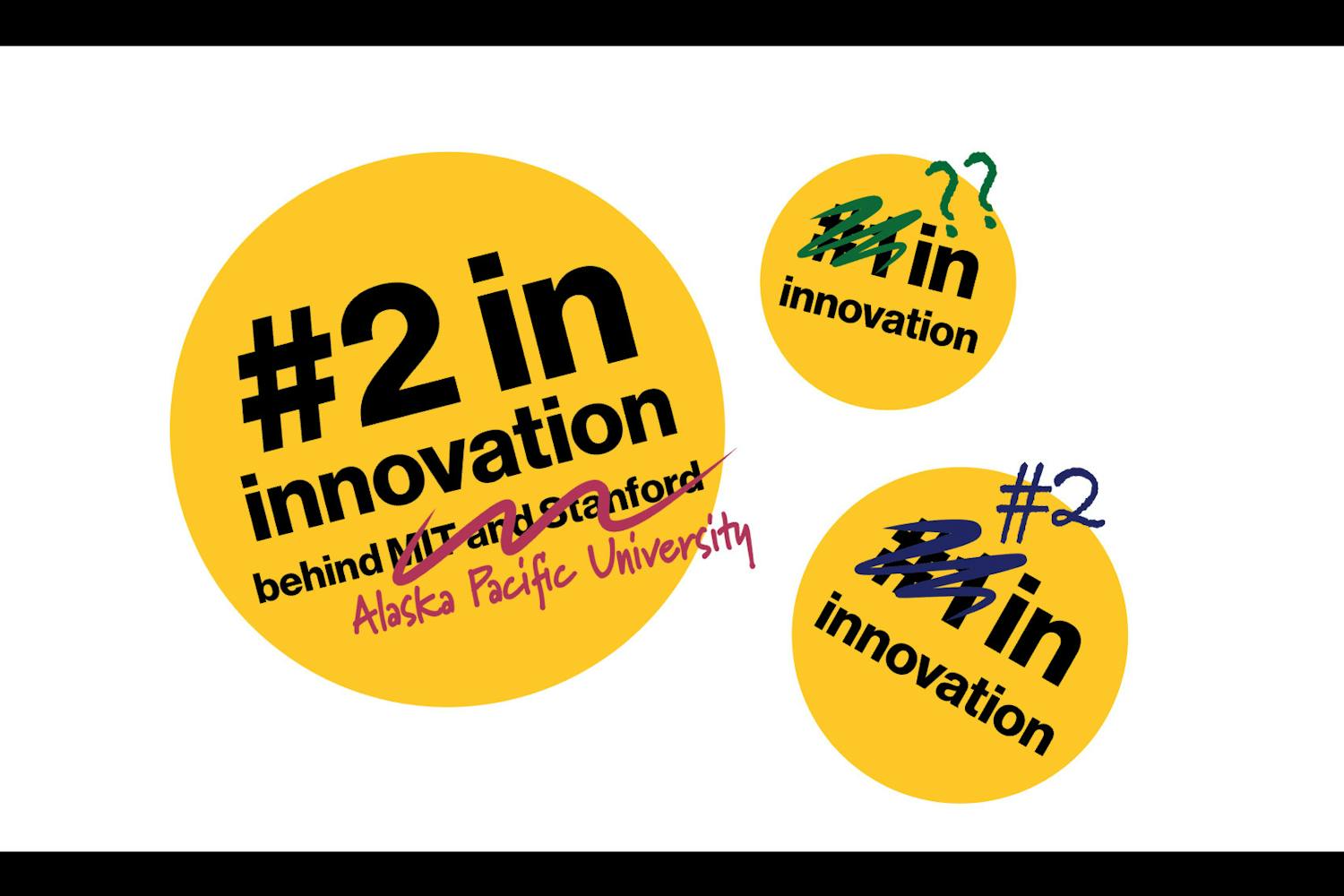 Graphic by Luu Nguyen
Graphic by Luu NguyenAlex Brusalis is not a political activist. He doesn’t go to protests, he doesn’t obsess over policy details, and until four years ago, he hadn’t even voted. But he is working on a project that could revolutionize the relationship between voters and politicians.
Called TruVote, Brusalis’ proposed product is a website (yourtruvote.com) that easily connects people to their legislators. Registration is free, and after typing in their nine-digit zip code, people can see pages for all politicians that represent them or are running to do so, from local to national levels. Brief biographies and voting histories are instantly available. Then, according to Brusalis, “We allow you to interact with those officials, to open up a line of communication.”
For the politicians that pay for pages on TruVote, voters can see their blogs, calendars of events, Facebook and Twitter feeds. People can ask questions for individual candidates, or, like a 24-hour online debate, questions for all the people running for a particular office. They can also make campaign contributions through the site.
Users would then be able to customize the news they get. People passionate about immigration could get more information about the subject and the opinions of the people running to represent the users. They can even customize it by source – passionate fans of the Atlantic magazine would then get more Atlantic articles about immigration in their news, for example.
It’s a promising idea – this project hopes to link voters and representatives, to make it easier for people to become informed and active in politics and to truly have a powerful voice.
Brusalis, a former ASU student, imagined the product after the 2008 elections: “I was just so frustrated by the extreme disconnect between the constituency, what we want and what we need, and the people that represent us,” he says. He hadn’t been too informed then and found that becoming knowledgeable was a sometimes confusing task – it was hard for him to even determine who represented his district in the state legislature. Politicians, too, have problems connecting with the people they want to represent.
He illustrates this with the story of Daniel Valenzuela, a Phoenix City Council member, who spent around $10,000 on his campaign website alone when he was running for his seat. Unfortunately, he shares his name with a prominent Mexican boxer and an Argentinian actor, so he had to spend another $15,000 on search engine optimization to get him on the first page of Google’s results.
Brusalis started Tru Vote Inc., the Scottsdale company behind TruVote, to “put the politicians directly in front of the people they represent, because it’s all based on zip code.” There is no fruitless searching for candidates, it’s easy and fast.
Whether a candidate is running for governor, senator or school board member, they pay $250 per month for a page on the service, meaning that the barrier of entry to a political race could be reduced. Brusalis says, “I believe that there are more qualified people out there that don’t have the financial means to run for office, but would like to.” With a more level playing field, these capable but under-financed candidates could find success.
The company would make money through issuing polls as well. For $2,500, politicians and special interest groups could ask users their opinions on a transportation project or an educational policy change. The surveys would be focused because they would use the zip codes that users provide to narrow down exactly who should be responding.
The potential effects of TruVote are far reaching. By having the candidates and their information more readily available, Brusalis says he thinks that campaigns can become more substantive. Right now there is a tremendous focus on name recognition; TruVote could very well shift the emphasis to the actual issues and ideas the candidates have.
Moreover, candidates would be immediately available to voters. They could explain their positions on controversial issues and field questions from the voting public. As a result, there would be less of a need for nasty attack ads, light on substance and heavy on scare tactics and ominous voice-overs, that pop up months before every election.
It all depends on how many voters actually use TruVote – politicians don’t want to pay for a page on a service that no one is going to see. Brusalis is optimistic. He plans to market the service as an educational tool so that teachers and professors from the middle school to collegiate level will use it in their classrooms.
In addition, special interests such as the American Federation of Labor and Congress of Industrial Organizers (AFL-CIO), a labor union, will want to join so that they can reach more people at a reduced cost (these groups do not pay to use TruVote). Brusalis says he already has two letters of intent from special interests to join the service once it is operational. Their members will join, and politicians will follow the people.
According to the US Census Bureau and Brad Plumer of the Washington Post, roughly 30 million of the people eligible to vote in 2008 weren’t even registered. Of these, 50 percent said the reason they did not vote was because they were simply “not interested.” An additional 15 million people who were registered to vote did not do so, with the largest group (over 25 percent) citing a lack of interest as the reason they chose not to cast their ballots.
These numbers may be slightly dated, but the reality they reflect has only gotten worse. According to a recent preliminary report from the Center for the Study of the American Electorate, the nation is on track for record low turnout in the upcoming midterm elections. “Turnout in 15 of the 25 states which held statewide primaries reached historic lows. Only three of those 25 states had higher turnout in 2014 than in 2010,” the report reads.
In addition, how many people will want to use a tool to become more informed? A 2009 European Journal of Communication study found that only 58 percent of Americans could identify what the Taliban is – keep in mind that this was while we still had over tens of thousands of troops stationed in Afghanistan to fight the Taliban. In 2011, Newsweek found that 29 percent of the 1,000 U.S. citizens they polled could not name the vice president. This is a persistent problem; according to Michael X. Delli Carpini of the University of Pennsylvania in the same Newsweek article, Americans’ level of civic knowledge has changed little since World War II.
How can TruVote seek to build a voter base large enough to support it if so many people are so incredibly uninterested in voting and becoming informed voters? Brusalis again responds with optimism, saying, “I think this is a tool to attract people who are intimidated about politics.” These people don’t know where to begin to learn about politics, so they don’t begin, he says.
After acknowledging that general apathy is still a problem, he emphasizes that TruVote really doesn’t need to have too many users before the site can attract politicians. He relates another story, this time of John Kaites, a former state senator. Of the nearly 150,000 people in Kaites’ district, fewer than 10,000, or a little more than six percent, would be the deciding voters in the race. Even a relatively small number of users, then, can make TruVote a viable political platform.
Despite doubts, ASU already has a few people interested in TruVote, or a service like it. Filmmaking practices freshman Katie Abderhalden just moved to Arizona, so she doesn’t know that much about local politics.
“I would be interested in TruVote,” she says, “because it would help me learn more about my new state.”
More enthusiasm follows from communications junior William Wilkes. “I’m engaged politically right now, but I’m engaged from afar. Something like this would allow me direct contact so I could hold politicians accountable for everything they do.”
The service even intrigued biomedical engineering freshman Pono Wong, who is not politically active. Wong says, “Political parties are arguing over nothing and wasting everyone’s time." But he still sees the merits in TruVote as an educational tool.
One major obstacle has yet to be overcome – money.
“All of the database relational diagrams, all the architecture, all the planning has been completed. The only thing we have to pay for currently is the coding and the marketing,” Brusalis says. Those two still cost a lot of money, though, and Brusalis says, “It’s very difficult to raise money for a concept. That’s the biggest hurdle that we have.”
Money has been promised in the past, but these investors have later withdrawn. Brusalis is looking into crowdfunding as an option and has recently met with the founder of Crowdfunder. The company also went through a business incubator called Seed Spot to help them refine their business plan and attract investment, but full funding has remained elusive. He stresses that they’re fairly close to their goal, but “we’ve been promised money in the past and, for one reason or another, it’s fallen through.”
Despite lack of funding, Brusalis remains hopeful as he plans more and more for the site to do. Already he is working on a game for TruVote, which he describes as "a political Risk." In addition, he has begun working on a charitable giving project where users in each individual area vote on the projects they want funded. The TruVote staff will donate their time to the winning project.
Brusalis' voice is clear and confident; it exudes a steady competence. It's hard not to become optimistic about TruVote, and to believe that, once it has been built, it may even change politics as usual. First, though, it has to exist.
CORRECTION: Due to a reporting error, a previous version of this article incorrectly reported that users pay $2,000 for a page with TruVote. They actually pay $250 per month.
Reach the writer at eric.w.dunn@asu.edu.




